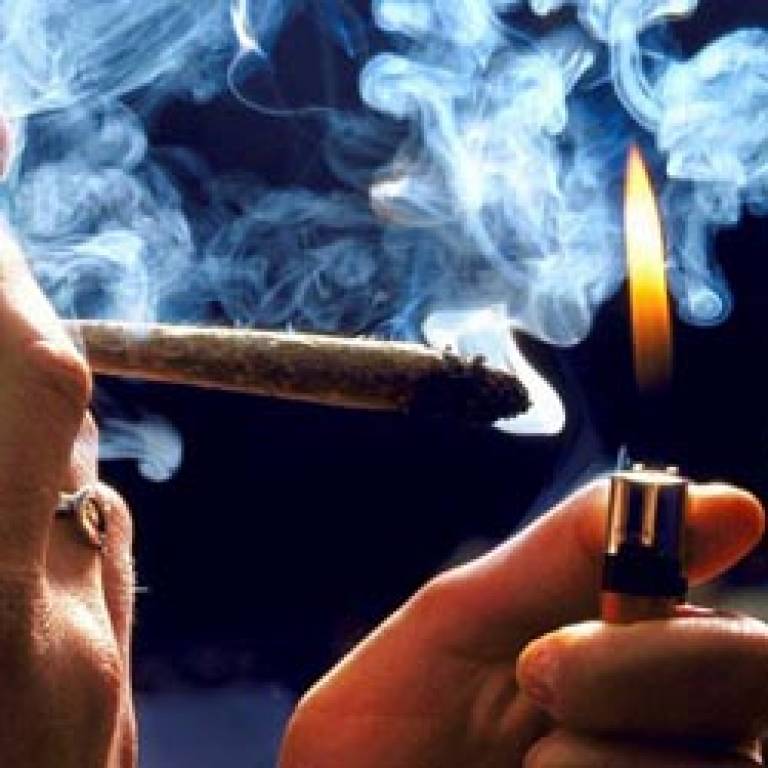Different strains of cannabis cause different psychological symptoms
2 April 2008
Links:
 ucl.ac.uk/clinical-psychology/" target="_self">UCL Clinical Psychology Unit
ucl.ac.uk/clinical-psychology/" target="_self">UCL Clinical Psychology UnitBritish Journal of Psychiatry
Read full paper
Research led by Dr Celia Morgan and Professor Val Curran (both UCL Psychology) has found that people who smoke different strains of cannabis show different psychological symptoms.
Cannabis contains a number of chemicals known as cannabinoids, which may have different effects - not all of them harmful to mental health. The main component of smoked cannabis is a cannabinoid known as THC, which is thought to be responsible for the psychosis-like effects of the drug. THC has been shown to raise anxiety levels and psychotic symptoms in healthy people.
In contrast, another cannabinoid, known as CBD, has been found to lower anxiety and may have antipsychotic properties. The ratio of these two compounds in smoked cannabis varies - there are higher levels of THC in the widespread 'skunk' or genetically modified strains of the plant.
It has been shown that regular cannabis users are more prone to psychosis and delusions. This study examined the link between these effects and the CBD/THC ratio in cannabis for the first time.
This study, published in the April 2008 issue of the British Journal of Psychiatry, used hair analysis to determine levels of THC and CBD in 140 drug users and relate these to measures of psychosis proneness and delusional thinking.
54 people screened positive for cannabis. Both THC and CBD were found in the hair of 26 of them, and THC alone in the hair of 20 others. They were then categorised into three groups: 'THC only', 'THC and CBD', and 'no cannabinoid'.
Participants completed a questionnaire to assess psychosis proneness - for example, experience of hallucinations and delusions, thought disorder, social withdrawal and impulsiveness.
The team found significant differences between the three groups - the 'THC only' group had significantly higher scores for psychosis proneness than the 'no cannabinoid' group and the 'THC+CBD' group. Compared with the 'no cannabinoid' group, there were significantly higher scores for delusional thinking in the 'THC only' group.
Dr Morgan said: "This study is the first to show that hair analytic techniques can be used to distinguish different groups of cannabis users. The implication is that people Our findings suggest that smoking strains of cannabis containing CBD in addition to THC may be protective against the psychotic-like symptoms caused by THC alone.
However, another potential explanation of these results is that pre-existing differences in psychosis proneness between people who use cannabis may draw them to smoke different strains of the drug. This research highlights the importance of distinguishing between different cannabinoids, and has implications in the debate over the link between cannabis and psychosis."
To find out more, use the links at the top of this article.
 Close
Close

